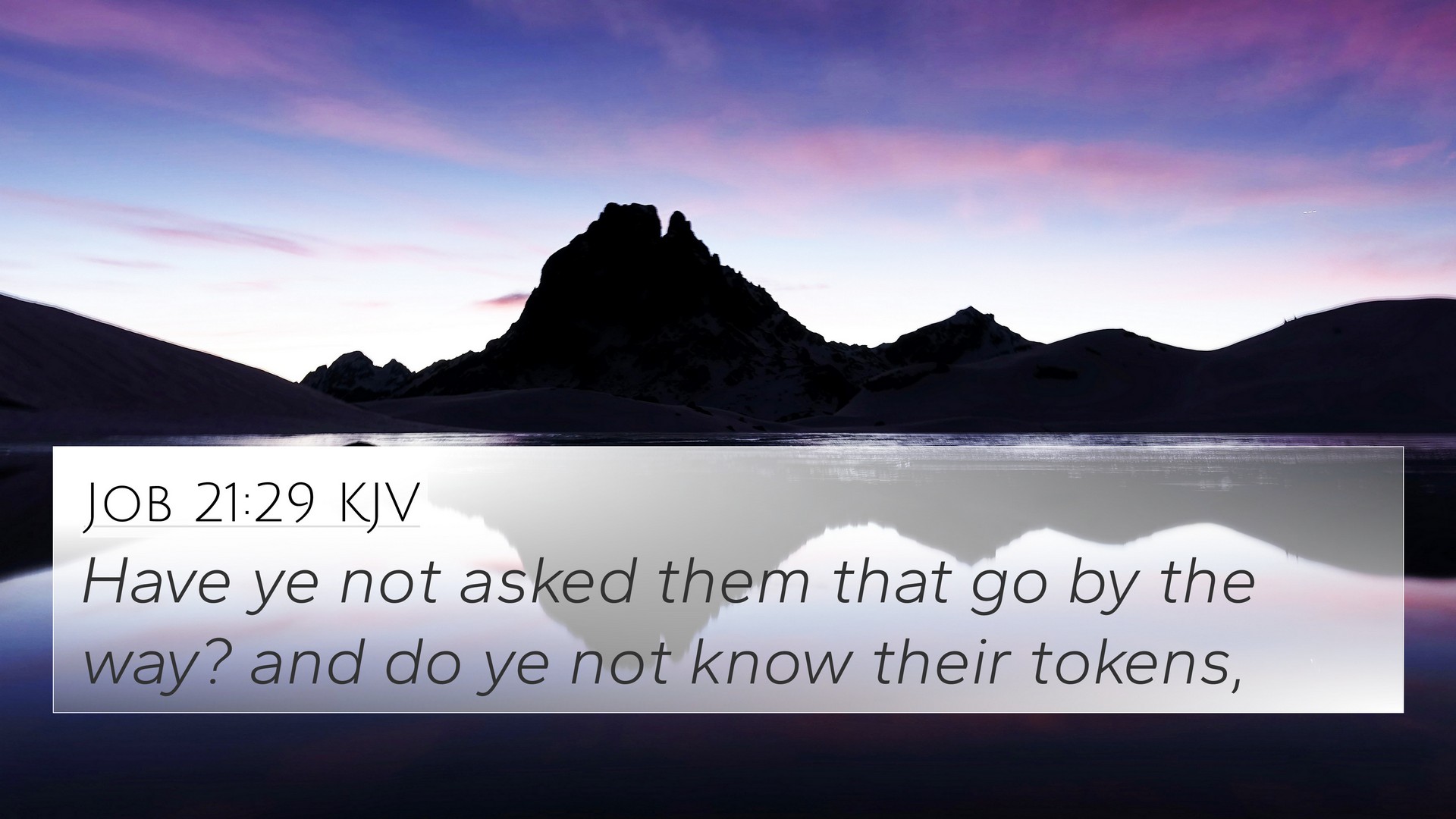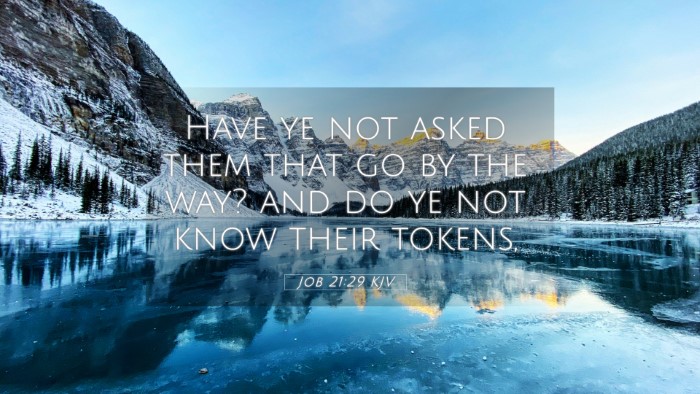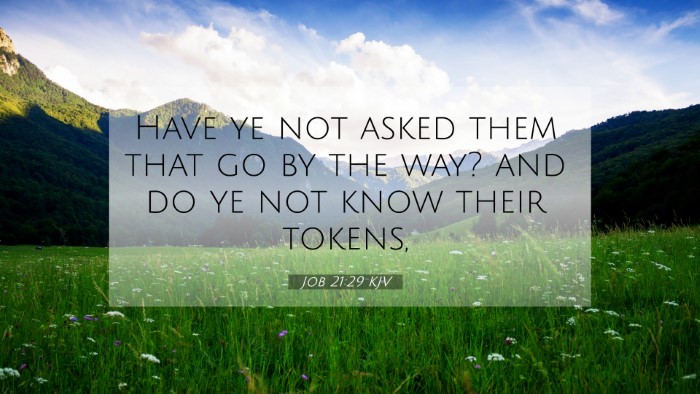Understanding Job 21:29
Job 21:29 states:
"Have you not asked those who travel the roads, and do you not accept their testimony?"
This verse forms part of Job’s response to his friends who have accused him of wrongdoing and questioned his integrity. Job challenges them to consider the experiences of those who travel and witness the fate of the wicked, promoting a theme of divine justice and the apparent prosperity of the ungodly.
Commentary Overview
Matthew Henry
According to Matthew Henry, in this verse, Job emphasizes the importance of gathering evidence from various experiences before forming an opinion on the fate of the wicked. He suggests that those who travel and observe can provide insight into the reality of life, which often contradicts the simplistic views of his friends about divine justice.
Albert Barnes
Albert Barnes expounds on this verse by noting that Job invites his friends to consider the testimonies of those who have traveled. He underscores that even among the appearances of prosperity, true justice may not be immediately evident in this life. This reflects a broader theological discussion about the nature of evil and suffering.
Adam Clarke
Adam Clarke further clarifies that Job's challenge invokes a practical approach to scrutinizing the circumstances of the wicked. Clarke suggests that Job is advocating for examining the lives of sinners and the justice of God, asserting that testimony from varied experiences often tells a different story than one might expect based on strict moral judgments.
Thematic Connections and Cross-references
In examining Job 21:29, we find various thematic connections with other scripture that emphasize God’s justice, the condition of the wicked, and human understanding.
- Job 4:7-8: Job's friends argue about the fate of the righteous versus the wicked.
- Psalms 37:1-2: Encourages the faithful not to fret over evildoers who seem to prosper.
- Ecclesiastes 8:14: Discusses the apparent inequality of life circumstances.
- Romans 9:22: God’s patience with vessels of wrath highlights an arc of divine mercy.
- Matthew 5:45: God causes the sun to shine and rain to fall on both the just and the unjust.
- Luke 16:25: The story of Lazarus contrasts the fate of the rich man and the poor man.
- 2 Peter 2:9: The Lord knows how to deliver the godly from temptations while reserving the unrighteous for judgment.
- Habakkuk 1:13: Questions God's justice in allowing evil to thrive.
- Malachi 3:15: Rhetoric on the arrogance of the wicked raises questions of divine justice.
- James 5:7-8: Encouragement to be patient in suffering, awaiting divine justice.
Inter-Biblical Dialogue and Comparative Analysis
Job 21:29 showcases a significant inter-Biblical conversation about suffering, justice, and human ignorance in discerning God's will. By linking this verse with others like Psalms 37:1-2 and Romans 9:22, we illustrate a broader biblical dialogue that clarifies that while evil may seem to flourish, God's justice operates beyond human understanding.
Tools for Bible Cross-referencing
Using resources like a bible concordance or a bible cross-reference guide can facilitate an in-depth study of themes relating to Job 21:29. These tools help in cross-referencing biblical texts effectively and give insight into the wider narrative of scripture.
Conclusion
The exploration of Job 21:29 invites believers to ponder deeper concepts of justice and the human experience of suffering. It emphasizes the necessity of understanding scripture contextually and thematically, revealing rich insights into God's character and the complexities of life.
Further Study Recommendations
- Utilize a bible cross-reference system to identify rich interconnections across scripture.
- Engage in cross-reference Bible study methods to deepen your understanding.
- Explore comprehensive Bible cross-reference materials for a systematic approach to scripture analysis.
- Identify connections between Old and New Testament teachings through diligent study.
- Consider the comparative study of Pauline epistles and their teachings about suffering.



